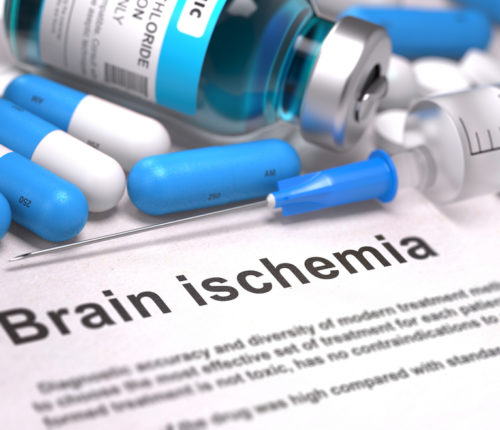
Infant Brain Ischemia
Infant brain ischemia is a type of birth injury caused by a lack of blood flow to the brain during labor or delivery. In the human body, blood carries oxygen and vital nutrients through the body to the brain, organs and cells. When there is inadequate blood flow, the brain is deprived of oxygen. Even a temporary loss of blood and oxygen to parts of the brain can cause damage to those areas.
Infant brain ischemia is preventable in many, if not most, cases. Healthcare providers have a responsibility to reduce the risk of injury and take action if complications develop. If they fail these responsibilities and the infant suffers brain damage, his or her parents may be eligible to pursue a birth injury claim.

What is Infant Brain Ischemia?
The arteries in the body serve as pathways that ensure every part of the body and brain has sufficient blood and oxygen. When an artery is blocked or bleeds, the brain does not receive adequate oxygen. This is often called an infant brain bleed. Even a few minutes without adequate oxygen can cause severe damage to brain tissue.
If brain ischemia is not treated quickly, the infant may suffer from hypoxic-ischemic encephalopathy (HIE). What is HIE? HIE occurs when blood flow and oxygen levels are both low, causing damage to the brain and other organs. HIE caused by asphyxia (lack of oxygen) is a leading cause of infant deaths in the United States.
Types of Infant Brain Ischemia
There are two primary variations of brain ischemia. They are categorized as:
- Focal Cerebral Ischemia: Blood vessels in the brain become blocked (occluded) causing ischemia around the area. The area may be visualized as dense by imaging tests and may be surrounded by smaller porous sites of ischemia.
- Global Cerebral Ischemia: Blood flow to the brain stops completely until it is restored by medical intervention. This leads to brain damage due to a lack of oxygenated blood. If it is not restored immediately, there may be global permanent ischemia, which results in seizures, coma, or death.
What Causes Infant Brain Ischemia?
There are several potential causes of infant brain ischemia. Genetics, viruses, placental dysfunction, umbilical cord compression and maternal lifestyle, for example. Brain ischemia can also be caused by the actions or inaction of the infant’s healthcare team. These are the often preventable birth injuries that lead to brain ischemia:
- Prolonged labor
- Nuchal Cord
- Failure to diagnose gestational diabetes
- Forceps delivery injury
- Shoulder dystocia
- Maternal infections
- Anoxia and hypoxia
- Birth asphyxia
Even if the mother has one of a number of disorders or conditions that are congenital or unpreventable, it is the doctor’s responsibility to monitor the baby and to make sure that it doesn’t affect the child. However, hypoxic insults can occur well before the onset of labor and may be undetectable or unpreventable.
Can Brain Ischemia be Prevented?
Infant brain ischemia most often occurs due to a difficult delivery. However, there are certain risk factors that may increase the risk of brain ischemia, which should be considered carefully by pregnant mothers and their healthcare team. In this regard, brain ischemia may be preventable with adequate and timely maternal and fetal prenatal care. Some of the risk factors for brain ischemia include:
- A history of blood clotting disorders
- Preterm birth (prior to full lung development)
- Low maternal blood pressure
- A history of maternal infections
- Placental insufficiency
- Diabetes
- Intrauterine growth restriction
Start Your FREE Case Review Today
If you or your child is injured as a result of medical negligence, call us to learn more.
Symptoms of Infant Brain Ischemia
When a patient has brain ischemia, the brain is basically being starved of oxygen until the cells and tissue die. When the brain starts to shut down, it generally starts in the affected area and then branches out from there. Some of the symptoms may be related to where in the brain the injury is located, but generally symptoms include:
- Blindness in one eye
- Dizziness
- Loss of coordination
- Vertigo
- Weakness, which may be felt in one arm or leg, on one whole side of the body or on both sides of the body
- Lethargy
- Seizures
- Loss of consciousness
When brain ischemia happens to an infant, the symptoms may be harder to notice because they cannot communicate effectively. An infant may only display symptoms such as lethargy, loss of consciousness or loss of movement in the affected limbs or parts of the body.
Treatment for Infant Brain Ischemia
There are several treatment options available for infants with brain ischemia. The type of treatment will depend on the cause and severity of the brain damage. Infants who have only mild brain damage may benefit from treatment options, such as:
- Physical therapy
- Occupational therapy
- Medications
These are beneficial ways to help the child develop motor function and meet developmental benchmarks.
Infants who have more severe injuries, such as an HIE injury, may need more intensive treatment, at least to start with. Often, surgery is required to repair the damage. Therapeutic neonatal hypothermia is also an option for treating brain damage. Then, therapies and other interventions will be used as needed.
Prognosis for Infants with Brain Ischemia
The prognosis for infants with brain ischemia will largely depend on their health and the extent of their injuries. Infants who suffer from complications like cerebral palsy will have a much different prognosis than an infant who suffers only temporary brain damage.
As the infant gets older, parents may notice:
- Delays in developmental milestones, such as crawling, walking or talking
- Difficulty with fine motor skills, such as playing, holding objects or feeding
- Difficulty learning new things, concentrating or remembering things
These problems can be difficult for the child and his or her family.
How to Optimize Your Child’s Prognosis
If your child has suffered brain damage due to infant brain ischemia, there’s no doubt you are searching for ways to help improve your child’s prognosis. Brain injuries can be devastating, and they can change the course of your child’s development and life for your entire family. There are some things that you can do as a parent to optimize your child’s prognosis, however. These include:
- Learn as much as you can about your child’s diagnoses and prognoses.
- Support your child’s healthcare team at home.
- Make sure your child has options for therapies or rehabilitation services.
- Be realistic when setting goals for your child.
- If your family is having a hard time adjusting to life with a brain injury, consider family counseling.
- Be open to alternative treatments that could improve your child’s prognosis and quality of life.
As a parent, you are one of the most important people on your child’s healthcare team. Make sure that you and your child’s doctors are on the same page about your child’s health and goals. Together, you can help your child have a happy and fulfilling life.



